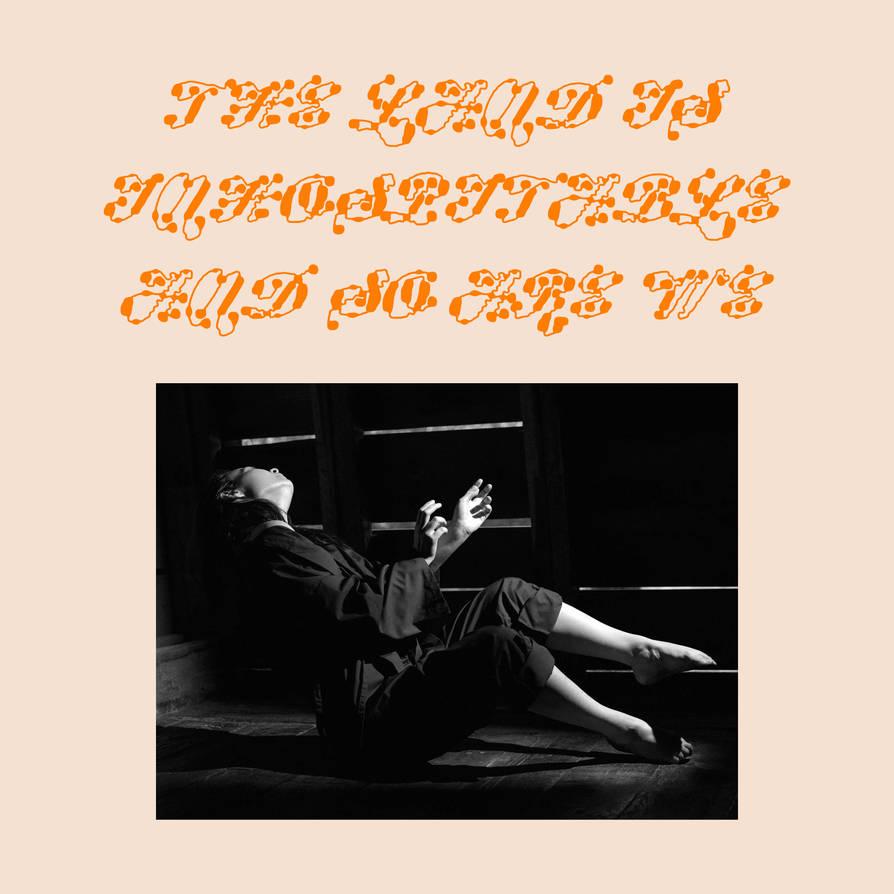For centuries, people considered nostalgia to be a mental illness. The 1833 London Cyclopaedia of Practical Medicine lists it as an “endemic disease,” according to the Online Etymology Dictionary.
The Cyclopaedia describes nostalgia as “the concourse of depressing symptoms which sometimes arise in persons who are absent from their native country, when they are seized with a longing desire of returning to their home and friends and the scenes of their youth.”
The word “nostalgia” is rooted in Greek, nostos meaning return and aglos meaning pain, literally meaning the pain of returning, according to the Online Etymology Dictionary.
When I blindly signed up to review “The Land is Inhospitable and So Are We,” Miski’s seventh album, I didn’t expect it to be one of the most nostalgic-sounding albums I’ve ever heard.
When I finally gave the album a listen, I was disappointed to discover it was slower indie folk fare — I was never a huge fan of deliberately sparse, chord-heavy acoustic music. Despite this, even on first casual listen I was struck by the production’s incredible ability to create atmosphere. It felt like listening to grandma’s old folk music while sitting stranded on Mars. Strummed acoustic chords, warm strings harmonizing above or between them and steel guitar slides work in tandem to create a warm, dusty and old-fashioned country music feel.
But the most prominent part of each song, the vocals, sabotage this country feel from the get-go. Always trailed by spacy reverb, they push through and fade away in the mix throughout the album. Sometimes it feels like the soundscape is drowning out Mitski’s voice, before she triumphantly rises back to the front. Other times, the vocals explode violently to the top of the mix, creating a feeling of instability and uncertainty — sometimes to the detriment of the listener’s eardrums. The clever use of vocals in the mix enhances the atmosphere heavily and is the first building block in taking the album from warmly nostalgic to painfully so.
The first few songs, augmented with synths, include this simple mix of vocal mixing and minimalist country feel. The album is a soundtrack to a mournful, wandering mind, trapped somewhere between detached observation and emotional turmoil. For example, in the opening track, “Bug Like an Angel,” Mitski stares down at a dead fly in her drink and realizes she became a drinker when she got older and now the drink “feels like family.” Then, reflecting her own distress at the revelation, a powerful chorus repeats the words “family.” Love is a heavy theme throughout the album and in “Bug Like an Angel,” Mitski reflects on hurting a lover and the way she copes with her guilt.
Most of the songs in the album lack traditional song structure, emerging more like moment-to-moment thoughts than cohesive, formulaic music. Animals roam through the lyrics, either as metaphors or tangible characters in the song. The heavy chords in “Buffalo Replaced” move forward like its namesake, eventually replaced by discordant synths streaking by like meteors in the night sky. In “The Deal,” Mitski encounters a bird-like spirit, which speaks to her in a mesmerizingly distorted voice. The song ends with a memorable crescendo of percussion, strings and haunting vocals.
The simple instrumentals of the opening tracks hide the album’s supporting orchestra and choir, which appear in later songs. Its sudden deployment at the end of the third track, “Heaven” is — I apologize — heavenly and it was what drew me into the album. “Heaven” starts as a standard folky love song, with slow guitar and a simple drum beat. After the chorus, the orchestra explodes into the song, taking you to the ecstasy of love. The song finishes with the return of the orchestra, reveling in the moment like Mitski vows to in the final verse.
Not all songs knock it out of the park, mostly because their production falls a little flat. “I Don’t Like My Mind,” “My Love Mine All Mine” and “The Frost” are the outliers. These moments of less engaging production expose the album’s weakness as an accessible piece. Finally understanding the lyrics’ meaning after looking them up on Genius, I realized they are complex and vividly written. But as a passive listener, they can feel too hard to decipher. It’s a bit like reading a poem for class — it looks well written, but it’s hard to read through at first.
My favorite track is “I’m Your Man.” Lyrically, it’s one of the best to listen to while staring unnervingly off into the distance and regretting your life choices. The choir and barking dog sounds are a bizarrely good match. As the song ends, a mournful choir straight out of an old Spaghetti Western film — a ‘60s subgenre of Italian-produced Western films, according to StudioBinder, enters. This choir evokes the feeling of walking alone at sunset in the arid desert. Dogs, which appear in multiple songs, bark in the background as the choir adds despairing chants. Its sadness is crushingly haunting and beautiful.
The album isn’t everyone’s cup of tea, but it is an atmospheric experience like no other. It brings you into an otherworldly place, one full of old-fashioned warmth, but ethereal and distant. “The Land is Inhospitable and So Are We” brings forth the beauty of love and closeness, but also revels in sadness and isolation. Mitski creates traditional American folk sounds and uses them to reflect on her pain, using creative and cinematic production to turn the warm and familiar into something cold and alien. In other words, Mitski creates nostalgia — the pain of returning.


